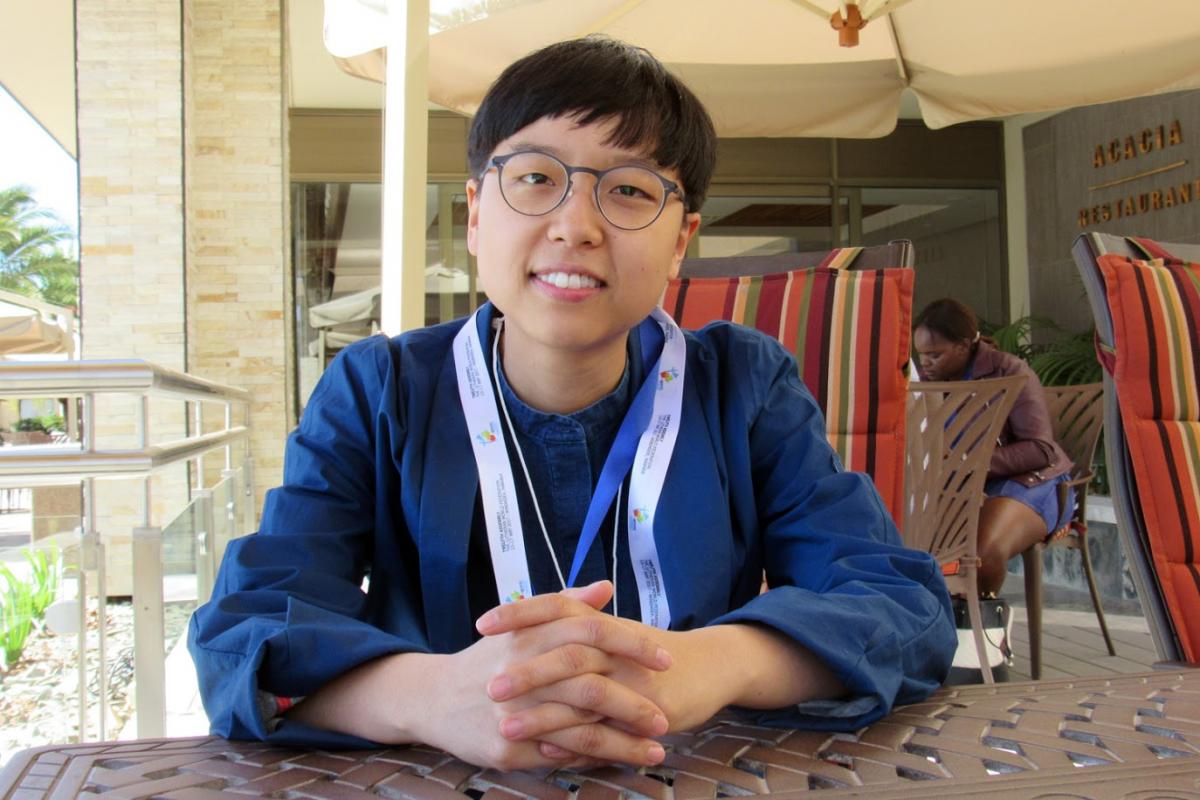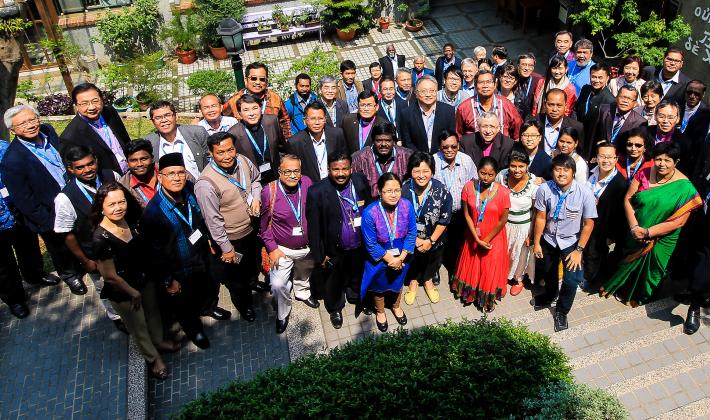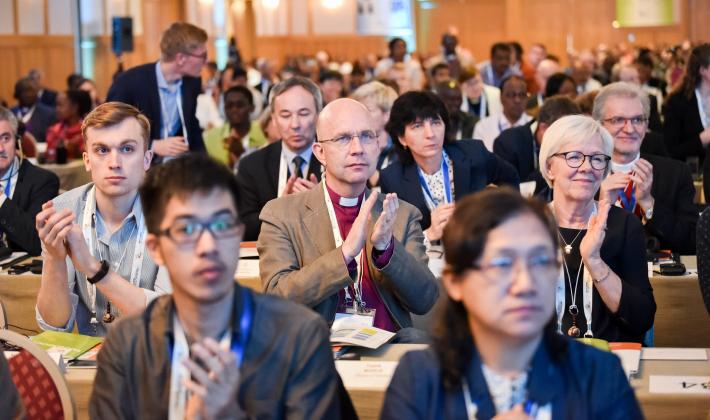
Ms Eunhae Kwon, LWF’s outgoing vice president in the Asia region, sees opportunities for the incoming members of the LWF’s Asia region to speed the implementation of a gender justice policy in the region.
LWF‘s Council Meeting held in 2013 voted to adopt the LWF Gender Justice Policy and its recommendations as a framework to orient the implementation of gender justice commitments at all levels of the communion. Kwon views the policy as a framework for addressing gender related issues, including women’s participation.
Gender justice policy is to respect God’s creation
“Both men and women are created by God and therefore both deserve equal opportunities and treatment. LWF’s gender justice policy respects both creations of God,” Kwon explains in giving the background for the need for a gender justice policy. Since LWF saw gender discrimination all over the world, the policy was introduced to address the issue.
The policy is deeply rooted in theology. An Asian theological perspective is also embedded in the policy through different consultations and workshops held at the regional level. Consultation was wide, and the policy was endorsed through several conferences at regional levels, including Asia. Also, the policy has been translated into various languages of Asia, namely Korean, Thai, Indonesian, Tamil and Hindi.
Eleventh Assembly resolutions: A foundation for a gender justice policy
Women’s meaningful participation has long been a key agenda of LWF. The issue was emphasized during its Eleventh LWF Assembly in Germany in 2010. During that Assembly, LWF adopted two important resolutions related to women. One resolution was about ensuring women’s forty percent participation in the LWF Assembly, Council, Officers, and all other committees and task forces, including at all regional levels. Similarly, the second important resolution was about gender justice. “We call on the Assembly to urge member churches to re-commit to genuine, practical and effective implementation of LWF policies and decisions regarding the full participation of women in the life of the church—and of the LWF communion as well as in society,” the resolution reads. Also, the Assembly asked member churches to set appropriate legislation and regulatory policies that enable and ensure women in leadership positions.
Asia adheres to the spirit of the policy
Kwon finds that member churches in Asia have been following the message and spirit of the Assembly’s policy. They have prioritized women’s meaningful participation. This has resulted in increased participation of women in all levels of churches. More importantly, she observes that member churches are adhering to the LWF’s gender justice policy. Saying that the Asia region has been doing great in relation to women’s meaningful participation on all structures of the LWF, she stressed the need for theological education for Asian women.
To raise issues of women’s participation and gender justice
Kwon was elected as LWF’s vice president in Asia by the Asia Council Meeting in Stuttgart, Germany, in July 2010. During her tenure, she has been able to raise issues of women’s participation and gender justice.
Despite approaching the end of her tenure, Kwon plans to continue awareness raising and advocacy initiatives to increase women’s meaningful participation. “With God’s grace, I got the opportunity to refine my skill through involvement in LWF. Now, I plan to use my skill, abilities and knowledge to raise awareness on women’s meaningful participation,” she says.
LWF/Umesh Pokharel



